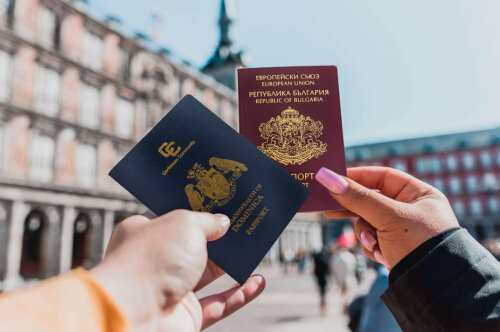Best Asylum Lawyers in Estonia
Share your needs with us, get contacted by law firms.
Free. Takes 2 min.
Or refine your search by selecting a city:
List of the best lawyers in Estonia
About Asylum Law in Estonia
Asylum law in Estonia is designed to offer protection to individuals who have fled their home country due to persecution or a well-founded fear of persecution based on race, religion, nationality, membership in a particular social group, or political opinion. Estonia, as part of the European Union, adheres to international standards and obligations, including the Geneva Convention on Refugees, which influence its asylum procedures and policies. The process of applying for asylum is carefully regulated to ensure fair and humane treatment for those seeking refuge.
Why You May Need a Lawyer
Seeking asylum is a complex legal process that can benefit from professional legal guidance. Some common situations where you may need a lawyer include:
- Assistance in preparing and submitting a comprehensive asylum application.
- Navigating the complexities of legal procedures and deadlines.
- Representing you at hearings and appeals if your initial application is denied.
- Interpreting legal documents and communication from migration authorities.
- Addressing any issues or complications related to your refugee status.
Local Laws Overview
Estonia's asylum law is governed largely by the country's obligations under EU directives and international agreements. Key aspects include:
- Application Process: Individuals must apply for asylum at border crossing points, police stations, or at the Estonian Border Guard. Initial interviews and screenings are conducted to establish grounds for refugee status.
- Detention and Accommodation: Asylum seekers may be required to stay in reception centers, and under certain conditions, they may be detained for security or identification purposes.
- Rights and Responsibilities: Asylum seekers have a right to basic needs provision, including accommodation, food, and medical care while their application is processed.
- Appeals Process: If an application is denied, the individual has the right to appeal the decision within a specified timeframe.
- Final Decision: Successful applicants receive refugee status or subsidiary protection, allowing them to reside in Estonia.
Frequently Asked Questions
What is the first step to apply for asylum in Estonia?
You must file an asylum application at an official entry point, such as a border crossing, a police station, or the Migration and Border Guard offices in Estonia.
How long does the asylum process take?
The timeline varies, but typically it takes several months for the authorities to reach a decision on your asylum application.
Can I work in Estonia while my application is being processed?
Generally, asylum seekers are allowed to work if their application process exceeds nine months without a final decision through no fault of their own.
What if my asylum application is denied?
You have the right to appeal the decision within a set period, often within 30 days of notification. It's advisable to seek legal counsel for the appeals process.
Will my family be protected if I am granted asylum?
Family members can be included in your asylum application, and if granted, they too may obtain residency rights and protection in Estonia.
Is it possible to apply for asylum from outside Estonia?
Under normal circumstances, Estonia requires individuals to be present in the country to file an asylum application.
What kind of support is available while my application is processed?
Applicants are eligible for basic support, including accommodation, food, healthcare, and some financial aid.
Can I travel outside Estonia while my application is pending?
Traveling outside Estonia may be restricted under certain conditions, and doing so might affect your application status.
How can I prove my need for asylum?
Applicants must provide credible evidence of persecution or a well-founded fear of persecution, including personal testimonies and any supporting documentation.
What is subsidiary protection?
Subsidiary protection is an alternative form of international protection for those who don't meet asylum criteria but are at risk of serious harm if returned to their home country.
Additional Resources
Several organizations and governmental bodies can offer assistance and information:
- Estonian Migration and Border Guard Board: The primary government agency responsible for processing asylum applications.
- UNHCR in Estonia: Provides information and support to asylum seekers and refugees in collaboration with local partners.
- Estonian Human Rights Centre: Offers advocacy and legal aid for asylum seekers and refugees.
- Local NGOs and Legal Aid Clinics: Offer various support services for asylum seekers, including language and cultural orientation, as well as legal advice.
Next Steps
If you need legal assistance in asylum matters, consider the following steps:
- Contact local legal aid organizations or refugee support centers for initial advice and information.
- Seek out lawyers specializing in immigration and asylum law for professional legal representation and guidance.
- Prepare all necessary documentation and personal statements to support your asylum application.
- Keep informed about your rights and responsibilities throughout the asylum process.
- Stay engaged with community and support networks who can assist during the process.
Lawzana helps you find the best lawyers and law firms in Estonia through a curated and pre-screened list of qualified legal professionals. Our platform offers rankings and detailed profiles of attorneys and law firms, allowing you to compare based on practice areas, including Asylum, experience, and client feedback.
Each profile includes a description of the firm's areas of practice, client reviews, team members and partners, year of establishment, spoken languages, office locations, contact information, social media presence, and any published articles or resources. Most firms on our platform speak English and are experienced in both local and international legal matters.
Get a quote from top-rated law firms in Estonia — quickly, securely, and without unnecessary hassle.
Disclaimer:
The information provided on this page is for general informational purposes only and does not constitute legal advice. While we strive to ensure the accuracy and relevance of the content, legal information may change over time, and interpretations of the law can vary. You should always consult with a qualified legal professional for advice specific to your situation.
We disclaim all liability for actions taken or not taken based on the content of this page. If you believe any information is incorrect or outdated, please contact us, and we will review and update it where appropriate.
Browse asylum law firms by city in Estonia
Refine your search by selecting a city.















